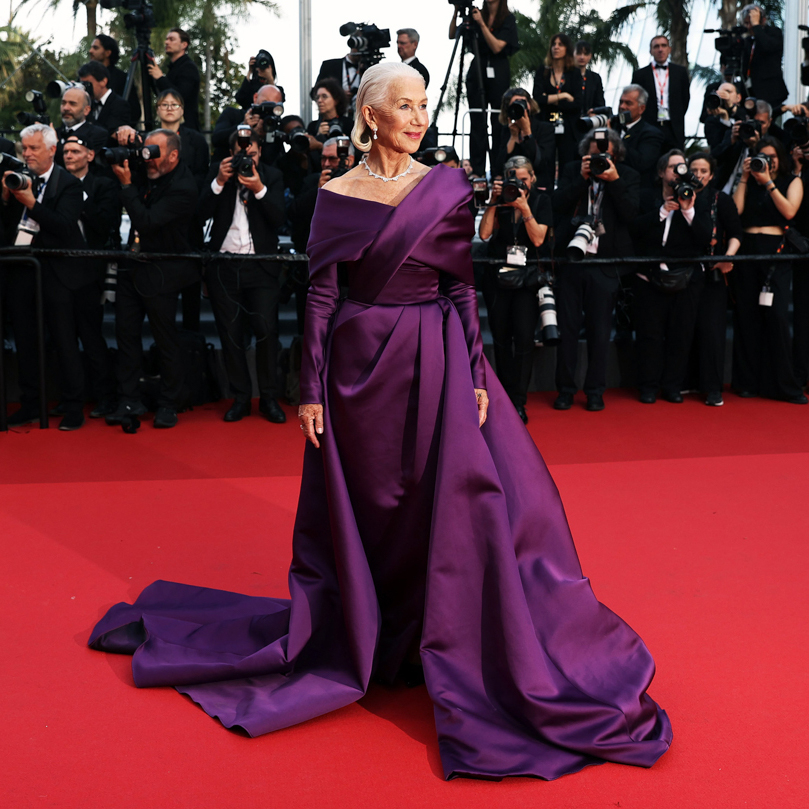One of the best exchanges in Helen Mirren’s new film, an enjoyably faithful adaptation of Richard Osman’s zillion-selling cozy crime caper The Thursday Murder Club, has fun with one of her least favorite words. Leaving their deluxe retirement home to do some sleuthing nearby, the former nurse Joyce (Celia Imrie) cheerfully suggests to the former spy Elizabeth (Mirren) that they are “bright-eyed, feisty old lady detectives” like the ones you get on Sunday night TV. Elizabeth, dressed for the occasion in a gilet and headscarf to give her a teasing resemblance to Mirren’s Oscar-winning title role in The Queen, snaps back with regal froideur: “Never use the words ‘bright-eyed feisty old ladies’ in my presence again.”
Sitting in a suite in Claridge’s to promote her film, Mirren is dressed in a stylishly simple white shirt. She’s good humored; you might even (cautiously) say bright-eyed. But her reaction to hearing the f-word quoted back to her is scarcely less absolute than her forthright character’s.

